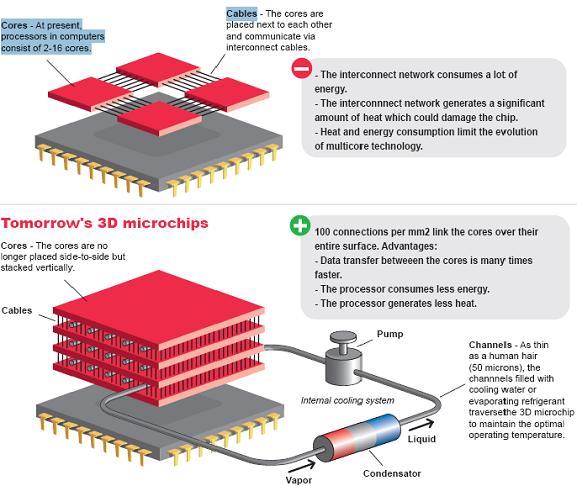Sunday, March 30, 2014
Monday, January 27, 2014
Saturday, February 02, 2013
Friday, August 19, 2011
SyNAPSE: IBM's brain
Posted by
Neuronion
at
08:23
0
comments
![]()
Monday, February 14, 2011
Google and the Machine Age
Dealing with uncertainty turned out to be more important than thinking with logical precision. We think of a clever argument or solution to a problem as one that contains a series of irrefutable logical steps and are impressed when someone can come up with such a sequence. But this is exactly what computers do well. The hard part is dealing with uncertainty, and choosing a good answer from among many possibilities. The fundamental tools of A.I. shifted from Logic to Probability in the late 1980s, and fundamental progress in the theory of uncertain reasoning underlies many of the recent practical advances...Click here for more...
Posted by
Neuronion
at
16:09
0
comments
![]()
Sunday, October 17, 2010
Blue Brain: A supercomputing project
Published by TED on October 2009
Posted by
Neuronion
at
22:13
0
comments
![]()
Tuesday, March 16, 2010
Blind soldier 'sees' with his tongue
"A British serviceman who lost his sight while serving in Iraq is using the BrainPort vision device in order to ‘see’ with his tongue. The new system — known as the BrainPort vision device — was developed by the Centre for Vision Restoration for the US Armed Forces Institute of Regenerative Medicine (AFIRM) and is being trialled in the UK by retired Lance Corporal, Craig Lundberg, who served with 2nd Battalion The Duke of Lancaster’s Regiment. Lundberg was hit by a rocket-propelled grenade in March 2007 while he was serving in Basra. As a result of the explosion his left eye had to be removed and his right eye was severely damaged, leaving him profoundly blind". Click for more...
Posted by
Neuronion
at
10:43
0
comments
![]()
Monday, March 01, 2010
How does the brain learn to see?
"Pawan Sinha details his groundbreaking research into how the brain's visual system develops. Sinha and his team provide free vision-restoring treatment to children born blind, and then study how their brains learn to interpret visual data. The work offers insights into neuroscience, engineering and even autism."
[G.K. Comment: Life is like a pyramid. By grouping the small details available at every level of a pyramid, you reach the top. This is called abstraction. The way we learn is like a pyramid and this video proves how it works. Amazing! ]
Posted by
Neuronion
at
10:13
0
comments
![]()
Wednesday, December 16, 2009
IBM, EPFL & ETH to build 3D brain-density processors
Published by The Register on 14/12/09

"Boffins in Switzerland have warned that increasingly powerful computer processors are set to guzzle the entire world electricity supply by the year 2100. They say that only 3D myria-core chips can save the day." Click for more...
Posted by
Neuronion
at
10:08
0
comments
![]()
Is quantum computing the future of image processing?
 Published by The Register on 15/12/09
Published by The Register on 15/12/09
[Image credit: http://abyss.uoregon.edu/~js/ast123/lectures/lec17.html]
Posted by
Neuronion
at
09:43
0
comments
![]()

